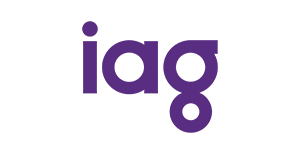Better data quality equals more accurate view of insurance risk, pricing
IAG's New Zealand business can now geocode 90% of customer addresses
One way insurers assess risk is by knowing the exact location of an insured business or household using longitude and latitude geocode data rather than relying on a postcode. Using geographical information systems (GIS), insurers can pinpoint properties to their exact location and overlay them with risk ratings. This more accurately assesses the risk to a single property so premiums can be priced more equitably.
When Carl Rajendram joined IAG as National Manager for Commercial Pricing and Analytics, the first thing he noticed was a need for better data quality.
"There were a lot of fields captured in the core system that had not been validated, and we needed a solution to improve the data," he said.
The company wanted to ensure its customer address records achieved a better match rate with its geocoding tool. Already using SAS for data exploration and reporting, IAG turned to SAS for a risk-profiling solution.
"We are a team of five people who could have built something to achieve the result, but it would have taken three to four months," Rajendram says. "The 'off-the-shelf' SAS Data Quality Desktop solution returned the results we were looking for within one month."
The speed of execution was good. Within a week and a half, we were seeing a return on our investment.
Carl Rajendram
National Manager, Commercial Pricing and Analytics
'Quick win' justifies business case
Rajendram said SAS New Zealand was keen to support a quick win for IAG to produce a broader business case for the solution.
"We used the SAS Data Quality solution to validate our address data for accurate geospatial information to better manage the organisation's risk exposure," he says. "SAS spent a couple of days showing us how the solution could be used to standardise the addresses, and we were impressed with how quick and easy it was."
"As an extreme example, when it comes to pricing a premium, you can't compare Canterbury with Christchurch," Rajendram explains. "Previously, we were using codes from the Territorial Local Authority database, but these cover a wide area. SAS enabled us to go down to x and y coordinates, which has made a huge difference in our ability to price and understand our risk profiles."
Geocoding allows IAG to identify risk factors such as whether a property is on a slope or near the coast, and then make appropriate pricing and underwriting decisions.
Gain confidence to data quality
Rajendram says the tool provided clarity on data issues and improved confidence in the data itself.
"Before, only about 70 percent of addresses were of a standard that allowed geocoding," he says. "After we implemented SAS, the number exceeded 85 percent. Within a month of installing SAS, we achieved what we were after. And with a match rate of nearly 90 percent, we can now present this number to reinsurers with greater accuracy and confidence.
"The speed of execution was good. Within a week and a half, we were seeing a return on our investment," he says.
IAG now uses the solution for other projects. "We have initiated a data quality program for our commercial business division, which will form the start of a data governance project," Rajendram says. "We use it to profile some of the data and provide a feedback loop to stakeholders such as the distribution team, business owners and operational staff. This type of visibility wasn't available previously."

Challenge
To use GIS technology for more accurate risk assessment, IAG NZ needed to improve the quality and integrity of its address data.
Solution
Benefits
- The ability to geocode 90% of addresses, compared to 70% before SAS.
- IAG's New Zealand business has improved its risk profile and increased the accuracy in its pricing model.
About IAG New Zealand Ltd
IAG New Zealand Ltd is New Zealand's largest general insurer. It is part of Insurance Australia Group (IAG), which is headquartered in Sydney and is Australasia's largest general insurance group.
IAG offers the majority of its products under the NZI, State and AMI brands. NZI specializes in providing business, rural and personal insurance through brokers and financial institutions, whereas State and AMI offer insurance for predominantly personal assets such as home and vehicle, with policies sold directly to the public.
The results illustrated in this article are specific to the particular situations, business models, data input, and computing environments described herein. Each SAS customer’s experience is unique based on business and technical variables and all statements must be considered non-typical. Actual savings, results, and performance characteristics will vary depending on individual customer configurations and conditions. SAS does not guarantee or represent that every customer will achieve similar results. The only warranties for SAS products and services are those that are set forth in the express warranty statements in the written agreement for such products and services. Nothing herein should be construed as constituting an additional warranty. Customers have shared their successes with SAS as part of an agreed-upon contractual exchange or project success summarization following a successful implementation of SAS software. Brand and product names are trademarks of their respective companies.